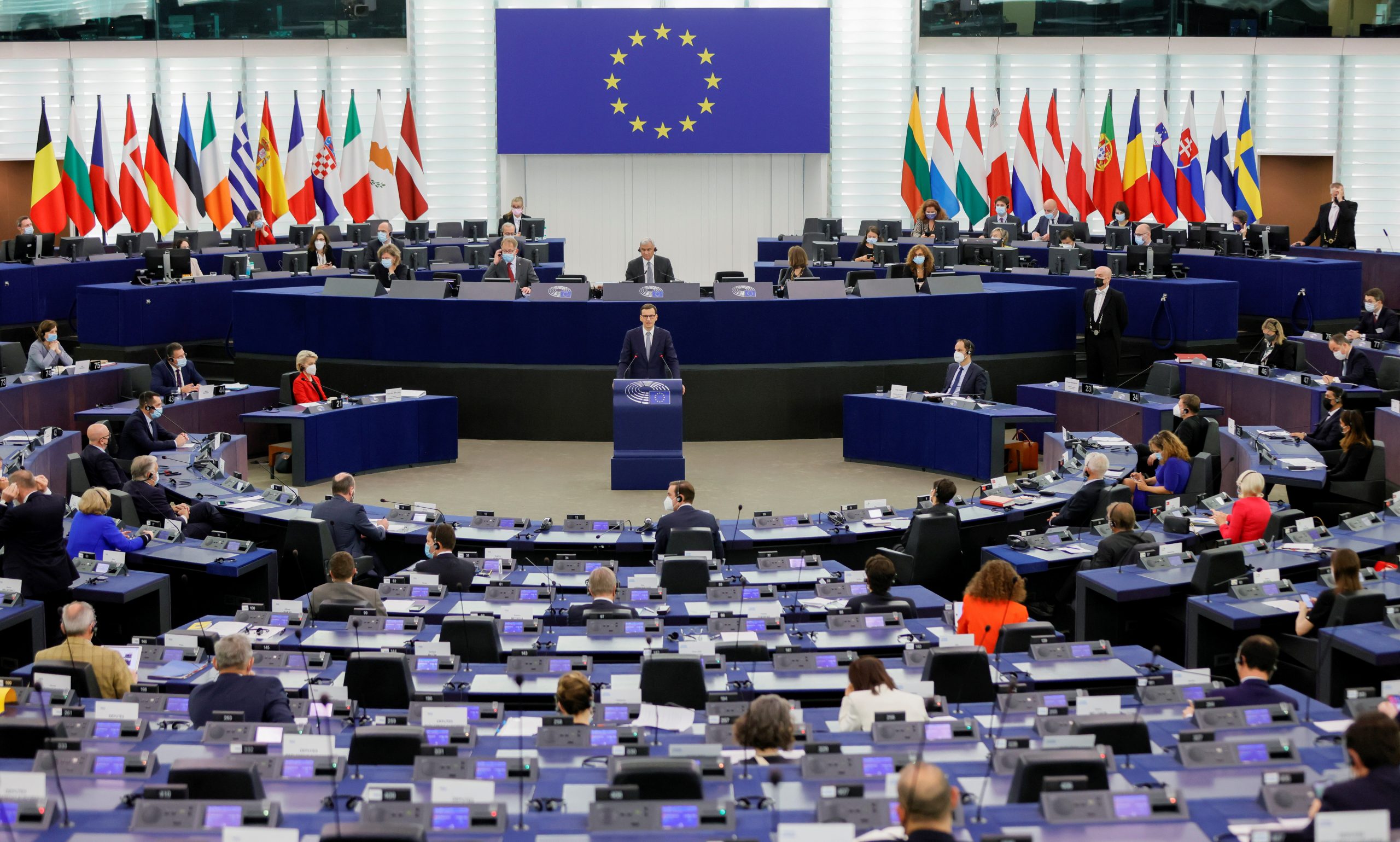European Union Leaders will tackle their Polish counterpart on Thursday over a court ruling that questioned the primacy of European laws in a sharp escalation of battles that risk precipitating a new crisis for the bloc.
The French president and the Dutch premier are particularly keen to prevent their governments’ cash contributions to the EU from benefitting socially conservative politicians undercutting human rights fixed in the laws of western liberal democracies.
“EU states that violate the rule of law should not receive EU funds,” the head of the European Union parliament, David Sassoli, said before national leaders of the bloc’s 27 member countries convened in Brussels on Thursday and Friday.
“The European Union is a community built on the principles of democracy and the rule of law. If these are under threat in a member state, the EU must act to protect them.”
Polish Prime Minister Mateusz Morawiecki is set to defend the Oct. 7 ruling by Poland’s Constitutional Tribunal stating that elements of EU law were incompatible with the country’s constitution.
“It’s a major problem and a challenge for the European project,” a French official said of the Polish ruling.
Morawiecki has already came under fire from EU lawmakers this week and the head of the Commission said the challenge to the unity of the European legal order would not go unanswered.
This, as well as other policies introduced by his ruling Law and Justice (PiS) party are set to cost Poland money.
“NOT TENABLE”
With the ruling, the PiS raised the stakes in years of increasingly bitter feuds with the EU over democratic principles from the freedom of courts and media to the rights of women, migrants and LGBT people.
A senior EU diplomat said such policies were “not tenable in the European Union.”
The Commission has for now barred Warsaw from tapping into 57 billion euros ($66 billion) of emergency funds to help its economy emerge from the COVID pandemic. Warsaw also risks losing other EU handouts, as well as penalties from the bloc’s top court.
Sweden, Finland and Luxembourg are also among those determined to bring Warsaw into line and have stepped up their criticism since PiS came to power in 2015.
The immediate consequences to Poland – with some 38 million people, the biggest ex-communist EU country – are financial.
But for the EU, the latest twist in feuds with the eurosceptic PiS also comes at a sensitive time as it grapples with the fallout from Brexit.
The bloc – without Britain – last year achieved a major leap in integration in agreeing joint debt guarantees to raise 750 billion euros for COVID economic recovery, overcoming stiff resistance from wealthy states like the Netherlands.
While most EU states share a currency, more fiscal coordination can only hold if the rich ones donating more than they recuperate from the bloc are sure their taxes do not end up financing politicians flouting their core liberal values.
Morawiecki has dismissed the idea of leaving the EU in a “Polexit”. Support for membership remains very high in Poland, which has benefitted enormously from funding coming from the bloc it joined in 2004.
Speaking on Wednesday, a senior Polish diplomat struck a conciliatory tone, saying the Polish tribunal did not challenge EU laws but particular interpretations of some of them.
Warsaw – backed by Hungarian Prime Minister Viktor Orban – wants to return powers to national capitals and has lashed out at what it says are excessive powers held by the Commission.
While many have grown increasingly frustrated at failed attempts to convince Warsaw to change tack, German Chancellor Angela Merkel has long warned against isolating Poland.
Her sway, however, is weakened as she visits Brussels for her last scheduled summit before she is due to hand over to a new German chancellor after 16 years.
Beyond putting pressure on Poland, the leaders will also lock horns over how to respond to a sharp spike in energy prices, discuss migration, their fraught relationship with Belarus and the COVID-19 pandemic.
($1 = 0.8584 euros)
(Additional reporting by Michel Rose, Andreas Rinke, Sabine Siebold; writing by Gabriela Baczynska; editing by Richard Pullin)
Related


































